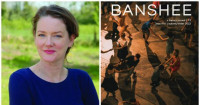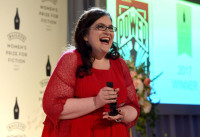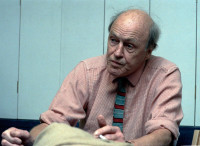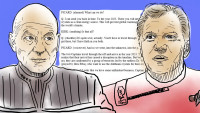
Words of wonder: A look behind the scenes of Ireland's thriving literary magazines
irishexaminer.com – Wednesday March 15, 2023

The Moth may be departing, but there's no shortage of other outlets for writers seeking publication. Here are profiles of a few of them
Who, in their right mind, would start a literary magazine? Plenty of people, it would seem, if the growth in publishing outlets for new writers, particularly online, is to be believed. While they’re often seen as a kind of cottage industry, small literary magazines are part of a bigger picture.
They provide a temperature check of the cultural climate, they’re a resource for talent-scouting publishers and a first stop for the big names of the future. Sally Rooney’s work, for example, first appeared in The Stinging Fly (see panel) so their influence is often way out of proportion to their size.
We spoke to three journal editors at varying stages of the process to find out what possessed them to enter the perilous world of literary publishing.

Do we still need the Women’s Prize for Fiction?
spectator.co.uk – Friday March 10, 2023

Nine debut books were among the 16 novels to make the cut in this year’s Women’s Prize for Fiction long list, announced this week. But what relevance does a gender-exclusive award retain when women dominate the contemporary world of publishing?
When the Women’s Prize for Fiction was launched in 1996 it was badly needed. Back then, female writers found it hard to get their work published. If they did succeed, their work was, all too often, unappreciated by critics and under-acknowledged. It’s clear that is no longer the case.
Women buy 80 per cent of all novels. At the time of writing, the New York Times top 15 bestseller list features 13 female writers. One global survey found 60 per cent of literary agents to be female; another poll, in the American publishing industry, found that 78 per cent of publishing staff overall were female, including six in ten at executive or board level. According to figures from the Bookseller, 629 of the 1,000 bestselling fiction titles from 2020 were written by women. By 2021, female-authored books sold more copies on average than those written by men.

Women's Prize for Fiction nominee Maggie O'Farrell shares her writing tips
harpersbazaar.com – Friday March 10, 2023

Irish novelist Maggie O'Farrell won the Betty Trask Award for her first novel, 'After You'd Gone'. Her novel 'Hamnet', about the life of William Shakespeare's son, received international acclaim and also won numerous awards, including the 2020 Women’s Prize for Fiction. This year, she is longlisted for the same award for her novel, 'The Marriage Portrait'. Here, she shares her advice on writing...
Beginning isn't easy
What I wish someone had told me when I was starting out is this: you don’t have to begin at the beginning. Openings are hard. The blizzard-white emptiness of the page, the empty document with the patiently waiting cursor, the idea that you are about to inscribe the first of many thousands of words, the knowledge that you are embarking on a project that will take two or three years. All this can conspire to give you such awful vertigo that it’s hard to put down anything, let alone a defining initial sentence.
I have found, again and again, that it’s rarely always immediately apparent where in its timeline your narrative should start. It took me a while to work out that a writer doesn’t have to begin at the beginning. You can start wherever you like in the story.

10 Tips For Applying to Writing Residencies
electricliterature.com – Thursday March 9, 2023

Like a lot of writers tackling a book project, I’ve applied to a few residencies with mixed success. But it was only this year, when I reviewed applications for a residency that I had previously attended that I really started to see what makes some applications fail and others really succeed.
Most of the factors that decide a person’s acceptance are settled before they write their application— namely, the quality of the work, its alignment with the mission of the residency, and their personal qualifications as a writer. But a weak application can get a very established writer passed over with little more than a second thought, while a strong one can send an emerging writer to the top of the short list. So what can you do to put your application in contention?

Writing is a ‘questionable business’, but what to make of John Hughes, one of the most prolific plagiarists in literary history?
theconversation.com – Thursday March 2, 2023

In June of last year, the Guardian revealed that John Hughes’ Miles Franklin-longlisted novel The Dogs contained material lifted from The Unwomanly Face of War, a book by Nobel Prize-winning Belarusian journalist Svetlana Alexievich. When approached about this, Hughes apologised for the transgression, describing the plagiarism as unintentional.
Before long, it was found that The Dogs contained material taken from numerous other texts, including widely read classics The Great Gatsby and All Quiet on the Western Front.
Hughes responded to these further revelations not with an apology, but with a spirited self-defence. He compared himself, rather incongruously, to Jorge Luis Borges’ Pierre Menard – a fictional character who sets out to rewrite Don Quixote line for line (the absurdity of the endeavour being the point) – and Jean Rhys, whose novel Wide Sargasso Sea does not hide the fact that it is a prequel to and reframing of Jane Eyre that exposes the original’s colonialist underpinnings.
Hughes was, he claimed, creating “a kind of literary palimpsest”. He insisted he had “always spoken through the voices of others”.

Roald Dahl once said he would set an ‘enormous crocodile’ on publishers if they changed his work
uk.style.yahoo.com – Monday February 27, 2023

Roald Dahl's comments from 40 years ago about "setting an enormous crocodile" on his publishers if they changed his work have shed light on what the late author would have thought of attempts to censor him.
Dahl was recorded specifically saying that he would be outraged by the idea of censorship after his death, and joked that he would send the title character from his book The Enormous Crocodile to deal with his publishers.
The Daily Telegraph had reported that recent versions of children's favourites by Dahl, who died in 1990, had been changed by publisher Puffin Books, a division of Penguin Random House, to remove descriptions of characters as "fat" and "ugly" in books including Charlie and the Chocolate Factory and Matilda.

ChatGPT showed me just how far it is from writing a blockbuster
techradar.com – Sunday February 26, 2023

10,000 hours. That’s how long, at least according to author Malcolm Gladwell, it’s supposed to take to master a craft. Or, if you’re an AI a matter of months, weeks, or days.
When I read that ChatGPT is now such an adept writer it’s already authored hundreds of books on Amazon’s self-publishing service, I experienced a mini freakout. To be clear, OpenAI’s groundbreaking chatbot is not publishing these tomes on its own. People are working with ChatGPT to develop themes, stories, and chapters for their books.
My immediate reaction was, “I’m doomed.” But as the icy chill of that cold reality receded, I considered something else. Anyone can write and publish a book, and most of them won’t be very good.

Thrillers, Yes—Join the Genre
By G. Miki Hayden
Instructor at Writer's Digest University online and private writing coach
firstwriter.com – Sunday February 26, 2023

5 Ideas for Finally Making BIG Money
Don’t say I told you this, but Murder Your Employer: The McMasters Guide to Homicide is listed by Amazon as one of its big sellers already this year. It’s also a thriller. The book is from Simon and Schuster.

3 Common Writing Mistakes New Sci-Fi/Fantasy Authors Make
theportalist.com – Friday February 17, 2023

Ioften get two responses when I tell people that I write books. The first is, "Oh, I don't think I could ever do that!" The second is just the opposite. "You know, I had an idea for a book myself."
The truth lies somewhere in between those two thoughts. It's certainly not impossible to write a book, but it takes more than a single good idea. You can write a great scene in a day, but a novel is often a labor of deliberate love. It takes time, planning, and revisions.
As a writer and an editor, I have seen many first-time authors (myself especially) struggle with the same few problems. This article highlights one issue I often see at the beginning, middle, and end of new authors' works—and how you can fix them.
If you are writing your first book, these tips can improve your manuscript and help you actually finish.

Want to be a writer? This bleak but buoyant guide says to get used to rejection
npr.org – Wednesday February 15, 2023

"No whining."
That's one of Stephen Marche's refrains throughout his provocative essay called On Writing and Failure. As a writer himself, Marche would never deny that writing is hard work: He well knows that writing for a living is fatiguing to the brain and tough on the ego and that the financial payoff is overwhelmingly dismal. But, by repeatedly saying, "No whining," Marche is telling aspiring writers, in particular, to "get used to it."
His aim in this little book is to talk about "what it takes to live as a writer, in air clear from the fumes of pompous incense." And what it takes, in Marche's view, is to have no illusions about the certainty of failure. Even beyond talent or luck, Marche argues, the one thing a writer needs to get used to is failing, again and again.
Get the free newsletter | Submit a news item or article | Get Writers' News for your website





